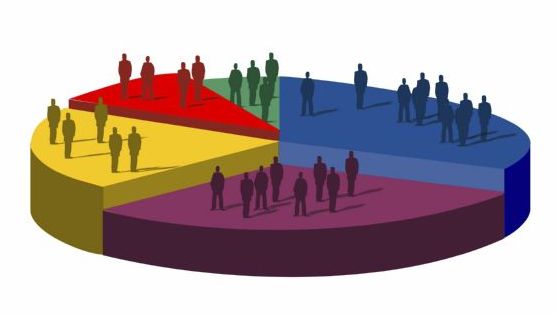
Jan. 16. By Dave Yochum. The vote on Mecklenburg County’s sales tax in November highlights the gap between Charlotte and the suburbs. The quarter-cent tax won in some close-in Charlotte precincts but it lost big-time up here in North Meck and Cornelius in particular.
In three Cornelius voting districts or precincts, all on the west side of I-77, 70 percent of voters rejected the proposal to increase the tax by a quarter-cent.
County-wide, it went down 58 percent to 42 percent.
In precinct 202/Town Hall, 64 percent of voters said no thank you to a new sales tax. In more liberal Davidson/206, the sales tax failed by the slimmest of margins, 50.16 percent against to 49.84 percent in favor.
The additional $50 million in county revenue would have helped fund the arts, parks and public education.
Nationally, more urban areas lean more liberal while suburban and rural lean more conservative, predicting how they want their tax monies spent. A recent study by the Pew Research Center on what unites and divides these three regions, puts suburbs in between between rural and urban thinking.
Regionalism—and support for the arts—mean different things to people across a county that was once dotted with mills and farms.
“Fiscally conservative people tend to believe public safety and infrastructure are the appropriate use of public dollars. Subsidizing the arts and sport stadiums owned by billionaires is better supported by private donations and investors,” said former NC Sen. Jeff Tarte. The Republican lost to Natasha Marcus, a Democrat, last fall.
Institutions that force connectedness, i.e. the Arts & Sciences Council or Charlotte Mecklenburg Schools, face unique challenges. Economic development and jobs—top of mind for conservatives—provide a more hands-on connectedness than the Arts & Sciences Council
According to opensecrets.org, the party split for donations from the 28031 ZIP code is 69 percent Republican vs. 31 percent Democratic.
Meanwhile, 28031 contributes about three times as much as the average ZIP code, according to OpenSecrets.
Gallup routinely finds it to be among the most politically balanced in the country, most recently putting Republicans at 41.9 percent of the population and Democrats at 41.3 percent.
For one thing, suburbs are becoming more diverse, attracting greater numbers of non-white residents who tend to vote Democratic. The landscape of many suburbs is shifting from sprawl to urban-style density, a type of makeover that tends to attract Democrats. Political scientists have shown that Democrats are more likely than Republicans to favor dense environments. 
Former Mecklenburg County Commissioner Jim Puckett said the public “paid attention” during the intense Arts & Sciences campaign and didn’t fall for “smoke and mirror” tactics.
Puckett, who says he will run for his old seat next year, said the new tax was as much a scheme to cover multimillion-dollar losses at the Arts and Science Council, as it was to fund arts that may or may not end up in North Meck.
Meanwhile, the age of voters in the central city—which gets so much media attention—is trending younger. Baby Boomers with an entirely different set of sensibilities are more concentrated in the suburbs.
How long that lasts, of course, is only a matter of time.
Suburbs will become more diverse as more people move here from the Northeast and California. The voter landscape will shift to more independent voters.
North Carolina has a history of support for infrastructure and higher education more so than support for a regional tax to support the arts.
“I believe in order to win the support of suburban votes in the future, a tax referendum will need to commit the use of those dollars to a specific use, and that use must directly benefit those voters,” said Tarte, who was also mayor of Corneliius.
Years ago North Meck voters supported a tax to help pay for commuter rail. The train does not exist, but Charlotte continues to charge us that tax.
“No longer will local suburban voters support any tax initiative that can be subjected to bait and switch tactics. Therefore taxes not being used for their originally stated purpose should be repealed,” Tarte said.
Population growth has surged by 67 percent since 1980, and the rate of growth is increasing. Minorities now account for about half of the population younger than 18 and constitute more than half in five of the six largest cities in the state.
North Carolina is experiencing a huge spike in the number of voters who don’t identify with either party,




